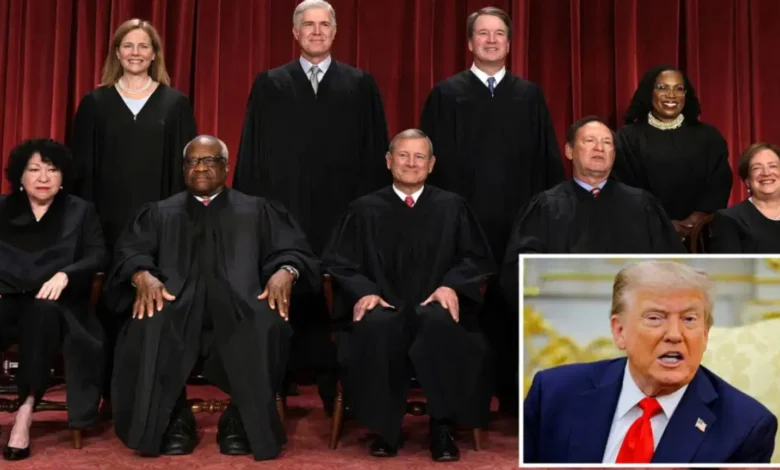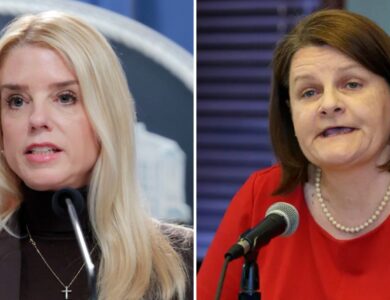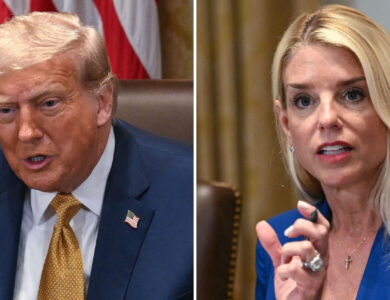Supreme Court Greenlights Trump Admin Deportations To Third Countries

On Monday, the Supreme Court approved the Trump administration’s request to pause a lower court injunction that had blocked deportations of individuals to third countries without prior notice.
The decision marks a victory for the administration as it aims to implement its immigration crackdown swiftly.
The Court ruled 6-3 in favor of staying the injunction, with Justices Sonia Sotomayor, Elena Kagan, and Ketanji Brown Jackson dissenting.
The case involved a group of migrants contesting their deportations to third countries—nations other than their countries of origin.
Lawyers representing these migrants urged the Supreme Court to uphold a ruling by U.S. District Judge Brian Murphy, who had ordered the Trump administration to keep all migrants facing deportation to third countries in U.S. custody until further review.
Murphy, based in Boston, oversaw a class-action lawsuit brought by migrants challenging deportations to countries such as South Sudan, El Salvador, Costa Rica, Guatemala, and others that the administration has reportedly considered in its ongoing deportation efforts.
Murphy ruled that migrants must stay in U.S. custody until they have the opportunity to undergo a “reasonable fear interview,” allowing them to explain to U.S. officials any fears of persecution or torture if released into the country.
Murphy emphasized that his order does not prevent Trump from “executing removal orders to third countries.” Rather, he clarified in a prior ruling that it “simply requires” the government to “comply with the law when carrying out” such removals, in accordance with the U.S. Constitution and in response to the Trump administration’s surge of last-minute removals and deportations.
In appealing the case to the Supreme Court, U.S. Solicitor General D. John Sauer argued that Murphy’s ruling had prevented the government from deporting “some of the worst of the worst illegal aliens,” including a group of migrants sent to South Sudan earlier this year without due process or prior notice.
In a separate argument, he reiterated that the migrants must remain in U.S. custody at a military base in Djibouti until each has the opportunity to undergo a “reasonable fear interview,” allowing them to explain to U.S. officials any fears of persecution or torture if released into South Sudanese custody.
U.S. judges have consistently ruled that the Trump administration violated due process by failing to notify migrants of their impending removals and denying them the opportunity to challenge their deportations in court, a stance the Supreme Court has upheld, albeit narrowly, on four separate occasions since Trump took office.
This is the second major victory the Trump administration has gotten from the Supreme Court.
The Supreme Court on Friday permitted the government to freeze more than $4 billion in foreign aid payments that President Trump moved to cancel last month through a rare “pocket rescission.”
In a 6-3 decision, the justices granted the Trump administration’s emergency appeal, halting a Sept. 3 lower court ruling that had ordered the previously appropriated funds to be released.
The majority of the justices found the “harms to the Executive’s conduct of foreign affairs appear to outweigh the potential harm faced by respondents.” They include the AIDS Vaccine Advocacy Coalition, Journalism Development Network, Center for Victims of Torture and the Global Health Council, The Post noted.
The Supreme Court’s ruling stopped short of weighing in on the larger issue of whether President Trump has the authority to unilaterally “impound” funds approved by Congress.
Last month, Trump formally notified House Speaker Mike Johnson (R-La.) of his move to cancel more than $4 billion in foreign aid, including $3.2 billion in U.S. Agency for International Development (USAID) programs, $322 million from the joint USAID–State Department Democracy Fund, and $521 million in State Department contributions to international organizations.
The request, known as a “pocket rescission,” was submitted to Congress so close to the end of the fiscal year on Sept. 30 that it would automatically take effect regardless of congressional action.
It marks the first time in nearly five decades that a president has used the maneuver.
The funding in question had been designated for nonprofit organizations currently suing the Trump administration, as well as for foreign governments.





